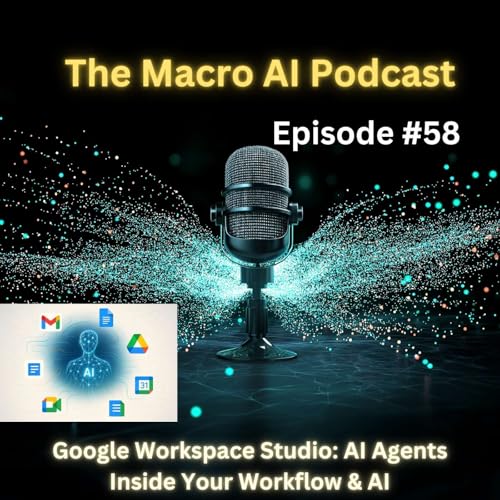In this episode, Gary and Scott explore how global telecom networks are undergoing the biggest architectural shift since the birth of the internet.
For decades, carriers have delivered connectivity as a static, reactive utility. But AI workloads are fundamentally breaking traditional network designs. Large enterprises running global inference pipelines, real-time analytics, digital twins, and distributed training now require deterministic latency, workload-aware routing, and transport layers that can predict and self-optimize in real time.
Gary and Scott explain why the next era of global connectivity will be defined by AI-native networks — intelligent, autonomous systems that continuously sense, anticipate, and orchestrate data flows based on model behavior, compute availability, energy conditions, and regulatory constraints.
They break down how this shift will transform:
• Enterprise architecture and global WAN design
• Latency-sensitive AI applications and GPU cluster connectivity
• Data governance and cross-border regulatory compliance
• The business models and competitive landscape of Tier-1 ISPs
Finally, the episode introduces a real-world blueprint of this future: the emerging partnership between Lumen, one of the world’s largest Tier-1 global networks, and Palantir, an AI-driven decision platform built for national-scale complexity. Gary and Scott explain how this collaboration hints at the telecom industry’s next decade — one where networks become intelligent participants in the AI ecosystem rather than passive transport.
If you’re a CIO, CTO, global network architect, cloud strategist, or enterprise AI leader, this is a must-listen episode that will reshape how you think about connectivity in the AI era.
This is the beginning of the intelligent network revolution — and the Macro AI Podcast will keep you up to date on the roadmap
Send a Text to the AI Guides on the show!
About your AI Guides
Gary Sloper
https://www.linkedin.com/in/gsloper/
Scott Bryan
https://www.linkedin.com/in/scottjbryan/
Macro AI Website:
https://www.macroaipodcast.com/
Macro AI LinkedIn Page:
https://www.linkedin.com/company/macro-ai-podcast/
Gary's Free AI Readiness Assessment:
https://macronetservices.com/events/the-comprehensive-guide-to-ai-readiness
Scott's Content & Blog
https://www.macronomics.ai/blog
 Jan 30 202618 mins
Jan 30 202618 mins 13 mins
13 mins 15 mins
15 mins 20 mins
20 mins 16 mins
16 mins Dec 19 202531 mins
Dec 19 202531 mins Dec 12 202523 mins
Dec 12 202523 mins 21 mins
21 mins
